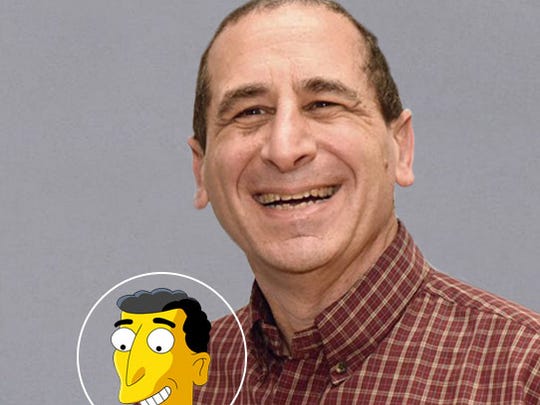Reiss Remembers
I just read Springfield Confidential, a book mostly about The Simpsons. I say mostly because it's by Mike Reiss, who was on the show's writing staff at the start, and has been working there, on and off, since. He spends a certain portion of the book telling us about his life and other comedy projects, but he knows why people are reading the book, and gives us plenty of hot poop about what The Simpsons is like behind the scenes.
I'd heard of Reiss, and writing partner Al Jean, well before The Simpsons. They wrote for National Lampoon and did an excellent parody of these essay-ads that were around at the time--their essay was how to write pornography by Thurgood Marshall. (Reiss informs us that Marshall saw the piece and got the FBI to investigate the two). Reiss and Jean, who'd met at the Harvard Lampoon, went on to write for shows like ALF and Sledge Hammer!, and then, not being able to get the job they wanted, settled for The Simpsons--an animated prime time comedy that everyone knew would be off the air in six weeks. (To be fair, some optimists thought it might last thirteen.) This may be the secret to the show's success--no one figured it had a chance, so the writers decided to do the things they could never get away with in conventional TV scripts (like putting in lots of clever jokes). It helped that they had the protection of powerful producer James L. Brooks, who made sure the suits had no say in the production of the show.
The writing staff was headed by Taxi and Cheers veteran Sam Simon. From the start the show was a huge hit for the fledgling Fox network. Everyone gave credit to Matt Groening, the underground comic strip artist who invented the characters, which annoyed Simon so much that it started a feud.
After setting up the basics of the show, Simon left and Jean and Reiss were handed the reins. Since then, others have been showrunner, though Jean came back and has done it for years (while Reiss sometimes wrote and consulted, and otherwise did his own projects). I actually interviewed Jean in this capacity several years ago, though Reiss was nowhere to be found at the time.
Reiss believes for every set up, there's the perfect punch line. It can take a long time to find, but it's out there. One example he gives is from an early episode where Lisa wins a beauty pageant but becomes so outspoken that the sponsors want her out, so they search through the application filled out by Homer to find a mistake as a pretext to replace her. It's got to be an innocent mistake, serious enough for dismissal, but not too stupid, too lazy or too nasty. Above all, it's got to be funny. The writers' room pitched and pitched but nothing was just right, until one guy who rarely spoke cracked it: "In the space marked 'Do not write in this box," Homer wrote 'OK.'"
Reiss goes into detail about how the show is written. Or more accurately, rewritten. The show may itself be funny, but the process is pretty serious. After a story pitch is accepted, the writer goes home to create the script in a couple weeks. Then the writers' room rewrites it a few times. Then there's a table read with the actors and staff, after which there's another rewrite. Then the cast, directed by a writer, records their lines. Then there's a bunch of editing, designing, storyboarding and animating. Then there's a screening, followed by another rewrite. Then it's sent to Korea for complete animation, followed by another screening and another rewrite. Next is more editing and mixing, as well as scoring. The whole process takes about nine months. (The show can't be timely because of this, but many have noted how prescient the show has been.)
Reiss also tells us about the characters, the actors, the guest stars, the popularity, the censorship, the movie--in general, all things Simpson. It's very entertaining to hear about this stuff, even though I stopped watching the show maybe fifteen years ago. (A common question Reiss gets is why isn't the show funny any more. Without admitting anything in particular, he does note that shows, like people, get tired--especially when the writers have run the characters through a few thousand plotlines.)
The book, as you'd expect, is jokey. But Reiss is a pro, so it's mostly funny jokey. He also isn't afraid to name names--he expresses his distaste for a number of executives, comedians and TV shows. There are a lot of Simpsons books out there, but your bookshelf should have room for this one.




1 Comments:
"OK." Genius.
Post a Comment
<< Home